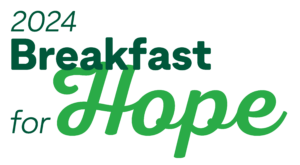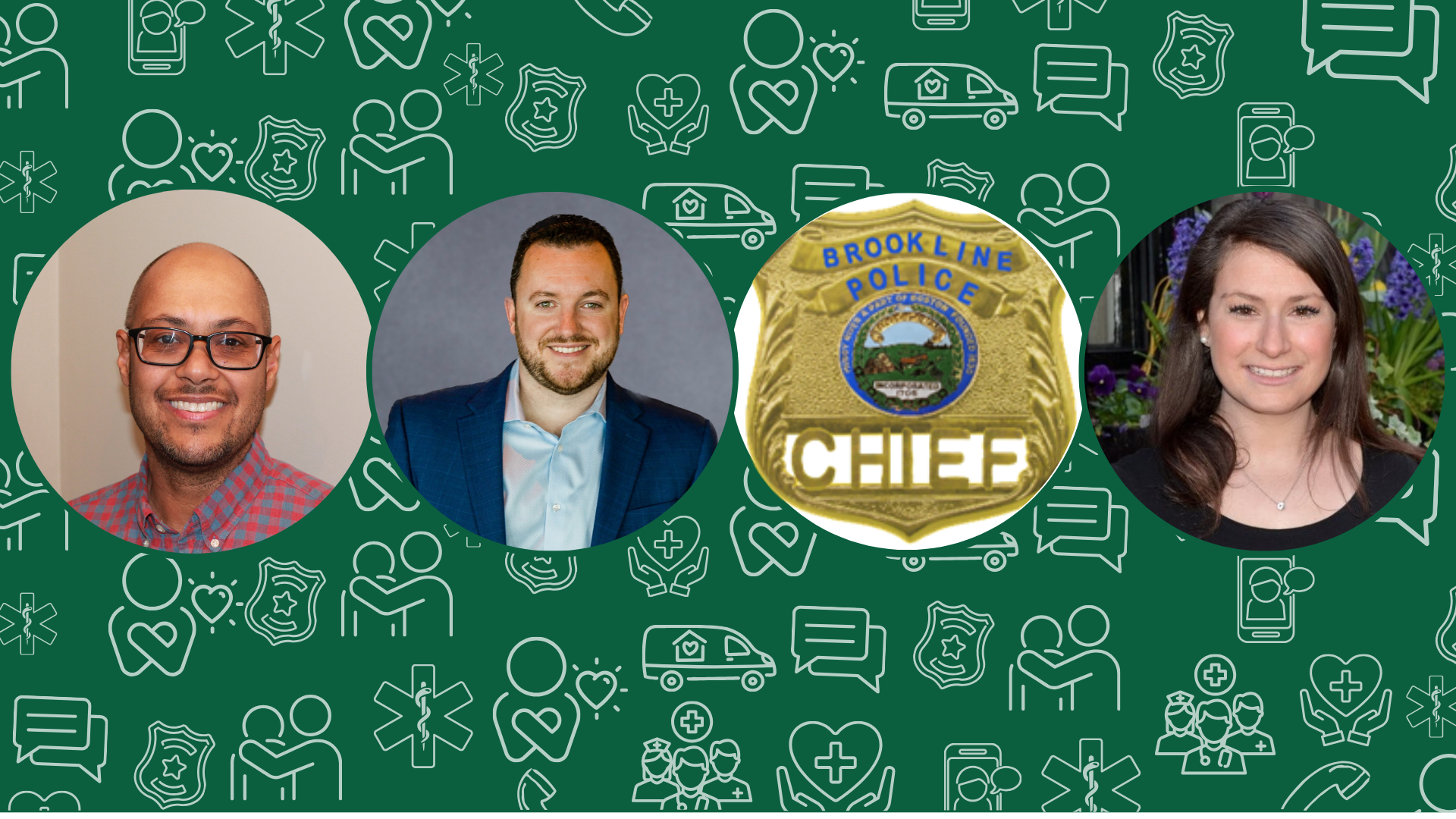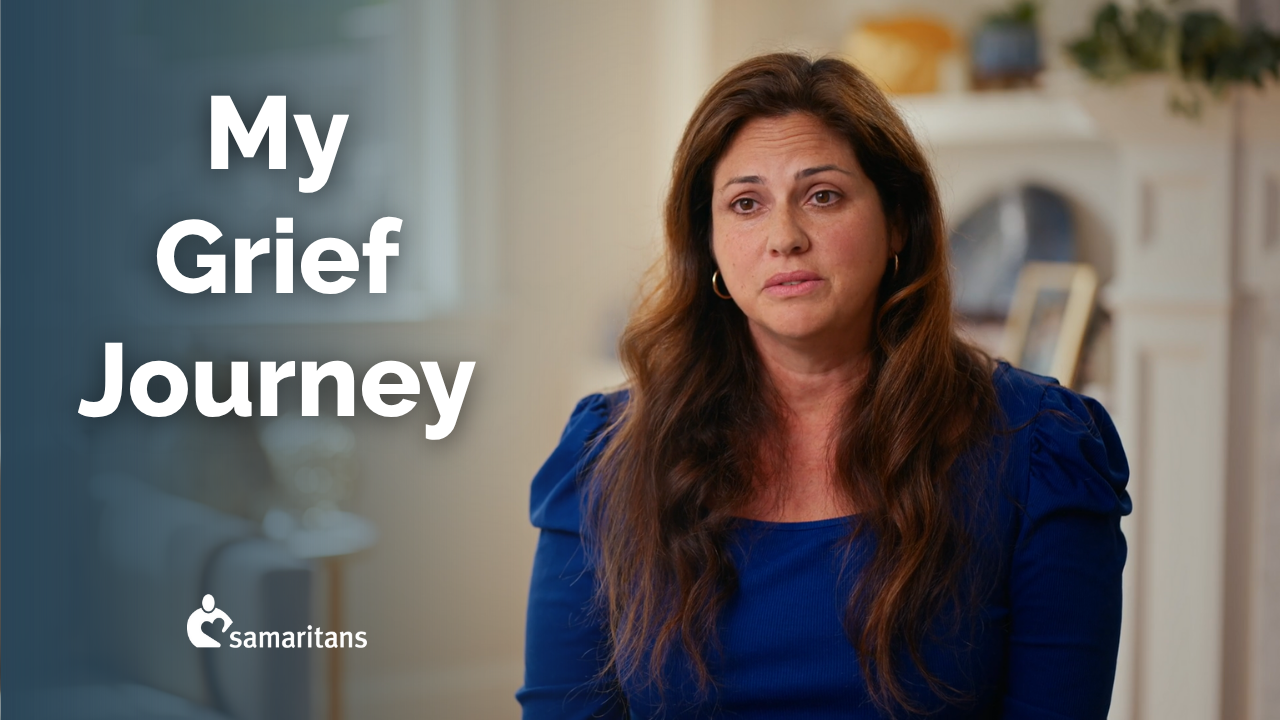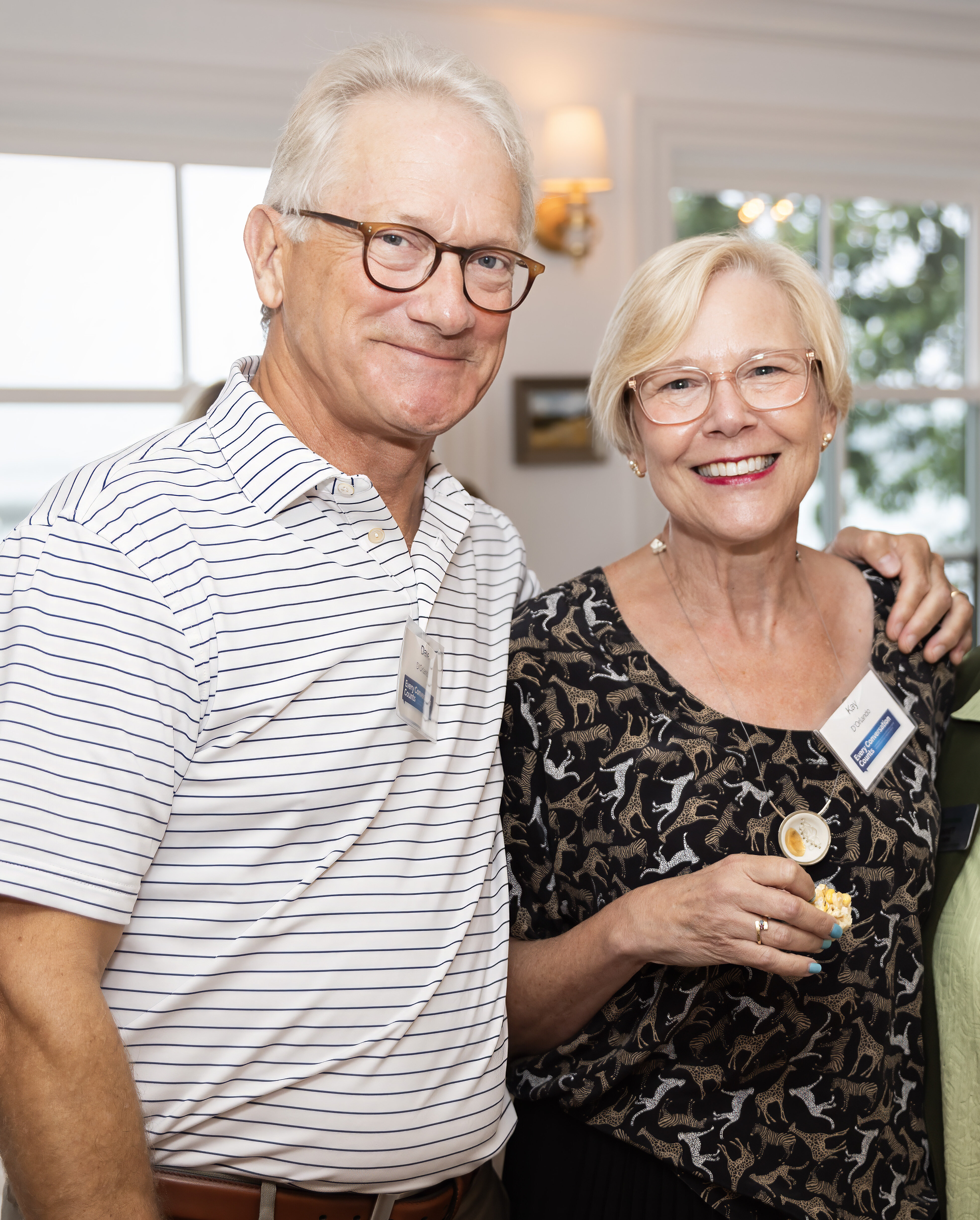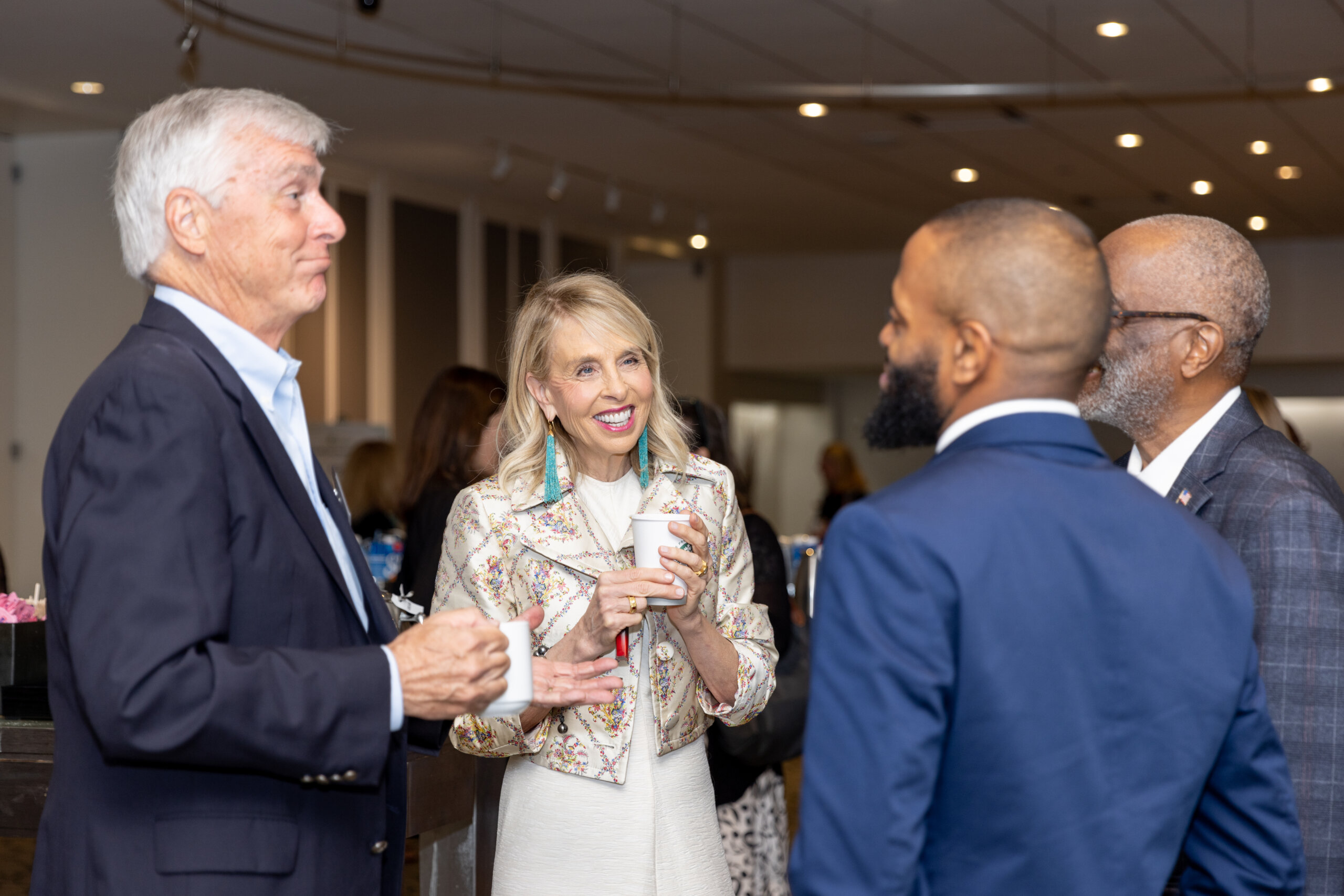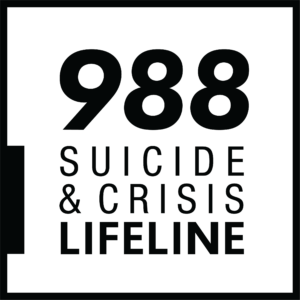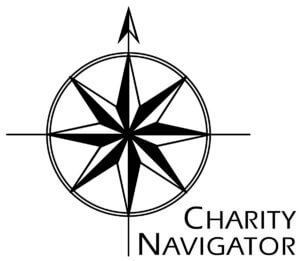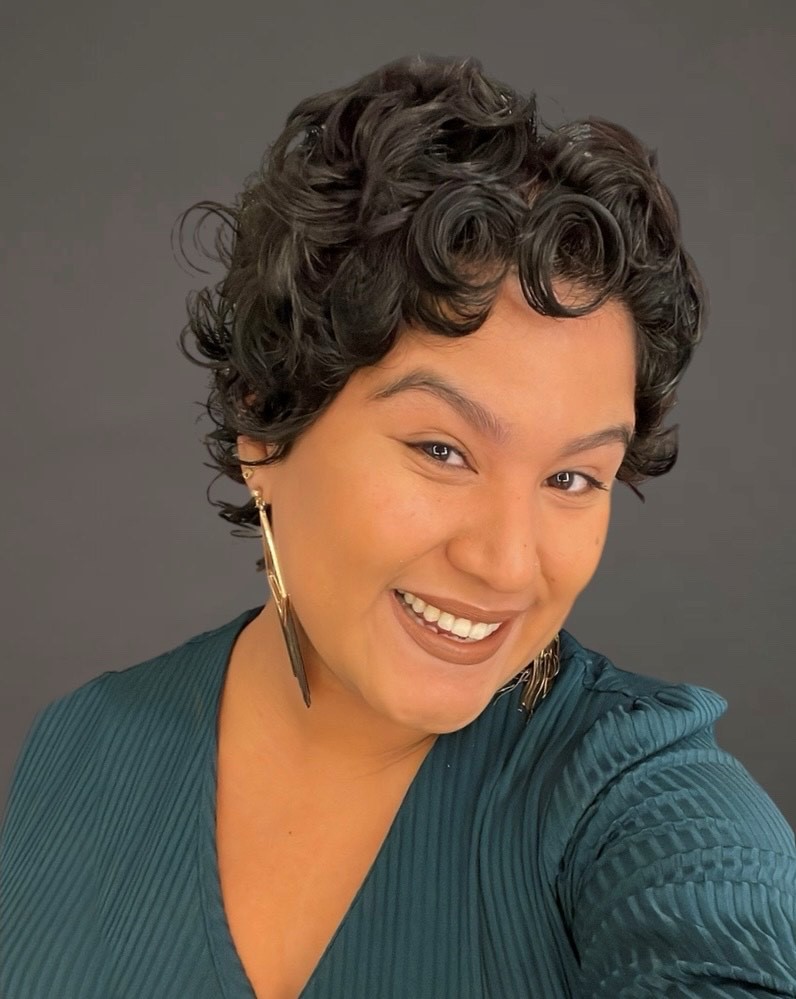
The 2024 Breakfast for Hope featured keynote speaker Kiara Hernandez, a Samaritans Helpline Training Coordinator and suicide attempt survivor. She is also working on SOSA, a new Samaritans program to support suicide attempt survivors. At the Breakfast for Hope, Kiara spoke about her own mental health struggles and her journey to help others through her work at Samaritans.
Befriending at Samaritans
Kiara Hernandez joined Samaritans as a Helpline volunteer in December 2021 and became a full-time staff member shortly after. She said that her passion for mental health and her own Lived Experience as a suicide attempt survivor drew her to Samaritans.
“Mental health advocacy has always been huge for me due to my personal experience,” Kiara said. “I want to help others who have felt like I have.”
In her current role as a Samaritans Helpline Training Coordinator, Kiara teaches Befrienders – Staff and volunteers on the Helpline – to provide emotional support to those who reach out in moments of crisis. Befrienders provide a safe space for people to talk about their pain and what they are dealing with. They offer an empathetic ear and use active listening skills but do not give advice.
“We want people to come up with their own thoughts, and sometimes the best way to truly befriend someone is to listen,” Kiara said. “Being able to provide space to people who feel alone or are grieving, and now training people to answer these calls, has been an incredible experience.”
The Importance of Kindness
Kiara stresses that it is important to show compassion, whether working as a Befriender or in your everyday life because anyone can be impacted by suicide or mental health issues. People often think a person must look sad to be struggling, but that is not the case.
“I felt ‘weak,’ but I wanted people to perceive me differently, and so I carried myself in a way that made it seem as though I had it all together,” she said. “If there’s anything I hope people take away, it’s to spread kindness, because you never know who is going to need it.”
No one should ever have to feel that they’re incapable of moving forward or feel shame about their [suicide] attempt.
Support for Survivors of Suicide Attempts (SOSA)
There is a shocking lack of services for those who have attempted to take their own lives, yet these survivors are at very high risk. Many suicide attempt survivors will go through a cycle of being hospitalized, discharged, then hospitalized again, often feeling there is no one they can share their experiences with. Peer support can be a valuable resource for suicide attempt survivors.
“When you survive an attempt, you feel as though the whole world is looking at you differently and there’s a lot of fear,” said Kiara. “There needs to be resources to feel less alone and ashamed.”
To meet this need, Samaritans is launching a Survivors of Suicide Attempts (SOSA) support group. The SOSA model was developed by the Didi Hirsch Suicide Prevention Center in California. It has been shown to greatly reduce hopelessness and thoughts, desire, and intent of suicide.
Kiara and other staff members at Samaritans, including Senior Director of Community Education and Outreach Fred Bernabe, are working to launch this new program in the summer of 2024. SOSA will be an 8-week program where suicide attempt survivors can unpack their experiences with peer support and the support of a mental health clinician.
“I’ve gone through dark moments in my life, and I think about the resources I wish I would have had at that point in my life,” said Kiara, “No one should ever have to feel that they’re incapable of moving forward or feel shame about their attempt, so I’m excited to help create this space.”
Suicide Prevention in BIPOC Communities
Suicide awareness and prevention are not the same for every community. The messages and language that have the most impact differ based on someone’s background, where they come from, and how they think about mental health. People of color often face heavy stigma surrounding mental health, and Kiara aims to address that both in her Breakfast for Hope keynote address and through SOSA.
“I hope that sharing my story conveys that having conversations around mental health, especially in communities of color, is so important. There is a stigma already on mental health, but I think in communities of color especially, there’s a stigma on top of it that shouldn’t be overlooked,” she said.
SOSA will intentionally connect with communities of color during recruitment, with a focus on creating a space where survivors of color feel comfortable sharing their experiences.
“As a Latina, it was very hard to feel like I had any sort of safe space to talk about my feelings. I felt like I had to hide my truth,” said Kiara, “I think SOSA is going to be incredible for folks to feel as though they have a space to honor their truth.”
Call or text 988 if you are feeling lonely, worried about someone else, or struggling with thoughts of suicide. We are here to listen, 24/7.
Youth up to age 24 can text Hey Sam at 439-726 for peer support.
